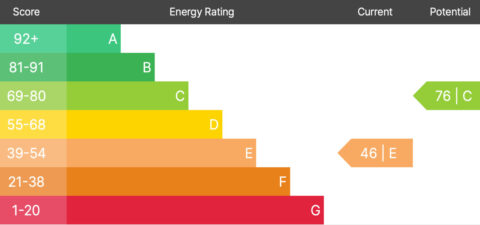Capital Allowances – Ultra Low Emission Vehicles (ULEVs)
Enhanced Capital Allowances (ECAs) allow companies to write off the whole cost of an asset against taxable profits. This is available for cars with 50g/km or less. More polluting cars, those emitting up to 110g/km only qualify for 18% a year write down allowance. Over 110g/km qualify for a lower “special rate pool” writing down allowance of 8% a year.
Company Car Benefit in Kind (BIK) Taxation 2018 to 2021
Company car drivers are taxed on the ‘Benefit-in-kind’ (BIK) of their vehicle. This amount is based on the official value of the car – its retail price. Plus any extras fitted, such as leather seats, upgraded sound systems, wheels etc. A percentage of the official value of the car (‘P11D’) is calculated as income and tax accordingly. Employee’s income tax rate e.g. 20% basic rate, higher rate of 40% or even additional rate of 45%.
To encourage take-up of low emission vehicles, company car drivers who choose lower-polluting vehicles – both in CO2 and NOx emissions, will dramatically reduce their tax liabilities by selecting cars with lower emissions.
Diesel vehicles have a 4% diesel supplement over petrol models – imposed after the Volkswagen emissions scandal. Only diesel cars that pass the ‘Real Driving Emissions’ Step 2 (RDE2) test will not have this surcharge.
Electric vehicles have the lowest tax rates – making them more tax efficient than petrol or diesel cars. In the tax year 2020/21 this reduces to only 2% of the list price value.
| 2018/19 CO2 Emissions (g/km) |
2018/19 % of list price |
2019/20 CO2 Emissions (g/km) |
2019/20 % of list price |
2020/21 CO2 Emissions (g/km) |
2020/21 % of list price |
|
|---|---|---|---|---|---|---|
| 0-50 | 13 | 0-50 | 16 | 0 | 2 | |
| 51-75 | 16 | 51-75 | 19 | 1-50 (split by zero emission miles) |
Range | |
| >130 miles | 2 | |||||
| 70-129 miles | 5 | |||||
| 40-69 miles | 8 | |||||
| 30-39 miles | 12 | |||||
| <30 miles | 14 | |||||
| 76-94 | 19 | 76-94 | 22 | 51-54 | 15 | |
| 95-99 | 20 | 95-99 | 23 | 55-59 | 16 | |
| 100-104 | 21 | 100-104 | 24 | 60-64 | 17 | |
| 105-109 | 22 | 105-109 | 25 | 65-69 | 18 | |
| 110-114 | 23 | 110-114 | 26 | 70-74 | 19 | |
| 115-119 | 24 | 115-119 | 27 | 75-79 | 20 | |
| 120-124 | 25 | 120-124 | 28 | 80-84 | 21 | |
| 125-129 | 26 | 125-129 | 29 | 85-89 | 22 | |
| 130-134 | 27 | 130-134 | 30 | 90-94 | 23 | |
| 135-139 | 28 | 135-139 | 31 | 95-99 | 24 | |
| 140-144 | 29 | 140-144 | 32 | 100-104 | 25 | |
| 145-149 | 30 | 145-149 | 33 | 105-109 | 26 | |
| 150-154 | 31 | 150-154 | 34 | 110-114 | 27 | |
| 155-159 | 32 | 155-159 | 35 | 115-119 | 28 | |
| 160-164 | 33 | 160-164 | 36 | 120-124 | 29 | |
| 165-169 | 34 | 165+ | 37 | 125-129 | 30 | |
| 170-174 | 35 | 130-134 | 31 | |||
| 175-179 | 36 | 135-139 | 32 | |||
| 180+ | 37 | 140-144 | 33 | |||
| 145-149 | 34 | |||||
| 150-154 | 35 | |||||
| 155-159 | 36 | |||||
| 160+ | 37 | |||||
From 6 April 2018 drivers must add 4% (increased from 3% at Autumn Budget 2017) to the appropriate percentage if the car is propelled solely by diesel (up to a maximum of 37%). Cars that meet the Real Driving Emissions Step 2 (RDE2) standard are exempt from the diesel supplement.
Government funding packages are available for the take-up of plug-in vehicles charging stations, for both private, fleet and public sector organisations. More information on the grants available can be found at the Office for Low Emission Vehicles.

































